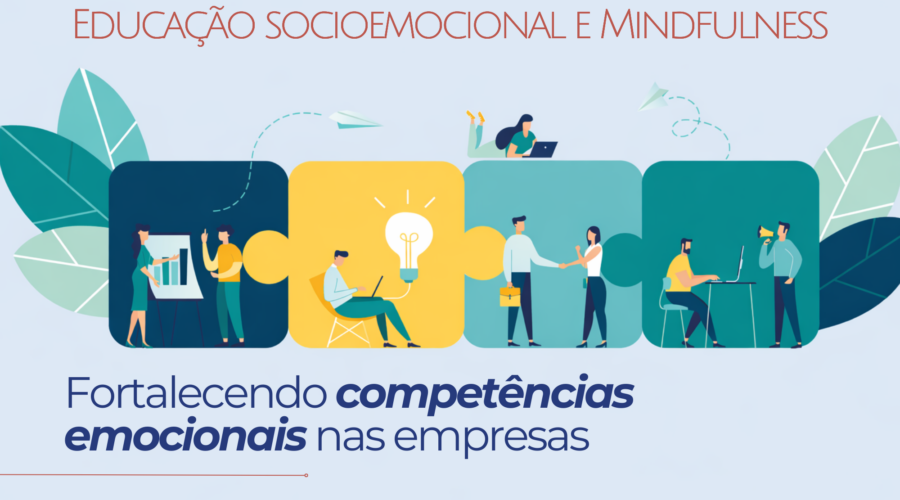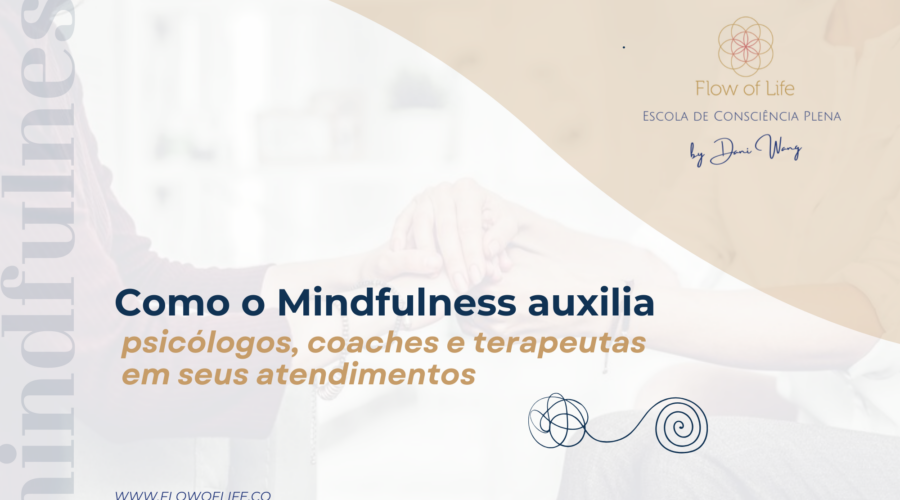The growing interest in Mindfulness has generated a significant expansion in the supply of training courses, especially on apps and other online platforms. While this popularity brings benefits by making the practice accessible to a wider audience, it also raises important concerns about the quality of training and the ethics of professionals who set out to teach Mindfulness, especially as there is no regulatory body in this category. Flow of Life, being a recognized training center for Mindfulness instructors in Brazil, is going to open this space in this post to democratize and reflect on the current parameters, since there are ethical conducts that must be considered, addressing the proliferation of online courses and the influence of digital marketing, questioning the qualification to relay a practice as subtle and profound as this one.
The training of a Mindfulness professional requires a deep understanding of the practices and principles behind mindfulness. Professionals from other fields, such as psychology, education or nursing, can use Mindfulness techniques to complement their work, but many just pass on something they have learned informally and do not undergo appropriate training. Mindfulness is not just relaxation and breathing techniques, but an integral approach that involves philosophical and psychological aspects and a genuine connection with spirituality. Training for instructors that is limited to online courses or short face-to-face courses, focused on more theoretical and less practical aspects, ends up making this learning superficial and therefore does not provide the necessary depth for the professional to be able to lead others with the necessary competence. Since the biggest difference in training is personally experiencing the whole process, which in itself is highly therapeutic and transformative. This pedagogy encompasses the vision, motivations and values that build up the person, so that this can naturally spill over into professional aspects.
Furthermore, proper training in Mindfulness requires a continuous process of self-knowledge and personal development, something that can hardly be achieved through short courses and without the supervision of experienced instructors. Professionals who train exclusively through online programs, without supervised practical experience, run the risk of reproducing incomplete or distorted knowledge, compromising the integrity of the practice and the well-being of their future students.
Digital marketing plays a central role in promoting courses, but the emphasis is often on selling the practice as a quick fix for stress and other problems, without considering the depth and seriousness it requires. Advertisements that present Mindfulness as a "fad", as already mentioned in our text "Mc Mindfulness" or that promise quick and easy results may attract interested parties, but they also distort the practice and reduce its credibility and evidence of its effectiveness.
Professional ethics demand that mental health professionals, here specifically in the context of Mindfulness practitioners, be honest and transparent about their qualifications and the nature of the practice they offer. For, rather than misleading or sensationalist marketing strategies, there are healthier ways of spreading the practice: focusing, for example, on educating the public about what Mindfulness really is and what it takes to become a competent practitioner. This includes highlighting your own solid training and what makes you an authoritative practitioner in the long term, which goes beyond courses to include life experience and interests in complementary subjects.
One of the fundamental principles of Mindfulness is ethics, which involves the responsibility to cause as little harm as possible to others (yes, distorted guidance, however well intentioned, can cause harm!). This principle extends to the way professionals train and transmit the practice down to the smallest detail. A qualified professional must be committed to continuous development, always seeking to improve their skills and knowledge, and also be aware of the limitations and variants of their development.
The ability to relay Mindfulness is not just a certificate obtained on a course. It requires a deep commitment to personal practice, the supervision of leading instructors in the field, and a clear understanding of how to adapt the practice to the specific needs of each student. Professionals who take this responsibility seriously are better prepared to offer ethical and effective teaching that respects the ancient tradition of the practice.
In short, the ethical conduct of Mindfulness professionals is fundamental to guaranteeing the integrity and effectiveness of this practice. The proliferation of online courses and the influence of digital marketing pose significant challenges to the training of qualified practitioners. However, to ensure that the practice is taught responsibly, it is essential that Mindfulness practitioners dedicate themselves to quality training, avoiding superficial marketing and committing to ongoing development. Only in this way will it be possible to transmit Mindfulness in an authentic way, preserving its depth and respecting the ethical principles that underpin it.
Click here and find out how our Flow Of Life Mindfulness Training works.




